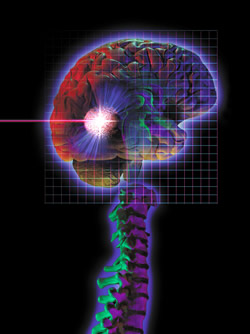 Neurosurgery is the medical specialty concerned with the prevention, diagnosis, treatment, and rehabilitation of disorders which affect any portion of the nervous system including the brain, the spinal cord, the peripheral nerves, and the extra-cranial cerebrovascular system.
Neurosurgery is the medical specialty concerned with the prevention, diagnosis, treatment, and rehabilitation of disorders which affect any portion of the nervous system including the brain, the spinal cord, the peripheral nerves, and the extra-cranial cerebrovascular system.
The Medtourism Group affiliated Departments of Neurosurgery provide comprehensive diagnosis and surgical care to patients with diseases of the brain, spinal cord, peripheral nerves, and extra-cranial cerebrovascular system.
The most frequently conditions treated by neurosurgeons include:
- Hydrocephalus
- Head trauma (brain hemorrhages, skull fractures, etc.)
- Spinal cord trauma
- Traumatic injuries of peripheral nerves
- Infections
- Tumors of the spine, spinal cord and peripheral nerves
- Intracerebral hemorrhage, such as subarachnoid hemorrhage, interdepartmental, and intracellular hemorrhages
- Spinal disc herniation
- Cervical or Lumbar spinal stenosis
- Intractable pain of cancer or trauma patients and cranial/peripheral nerve pain
- Vascular malformations (arteriovenous malformations, venous angiomas, cavernous angiomas, capillary telangiectasia) of the brain and spinal cord
- Moyamoya disease
Neuroradiology methods are used in modern neurosurgical diagnosis and treatment, including:
- Computer assisted imaging computed tomography (CT)
- Magnetic resonance imaging (MRI)
- Positron emission tomography (PET)
- Magnetoencephalography (MEG)
- Stereotactic surgery
Microsurgery is utilized in many aspects of neurological surgery, such as:
- Microvascular anastomosis when EC-IC surgery is performed.
- Minimally invasive spine surgery, as microdiscectomy, laminectomy, and artificial discs.
Minimally invasive endoscopic surgical techniques such as:
- Endoscopic endonasal surgery for pituitary tumors, craniopharyngiomas, chordomas, and the repair of cerebrospinal fluid leaks.
- Ventricular endoscopy, for colloid cysts and neurocysticercosis.
- Endoscopic techniques can be used to assist in the evacuation of hematomas and trigeminal neuralgia.
- Repair of craniofacial disorders and disturbance of cerebrospinal fluid circulation. Conditions such as chiari malformation, craniosynostosis, and syringomyelia are treated (cranioplasty).
Neurosurgeons are involved in Stereotactic Radiosurgery along with Radiation Oncologists for tumor and AVM treatment. Radiosurgical methods such as Gamma knife and Cyberknife are used.

